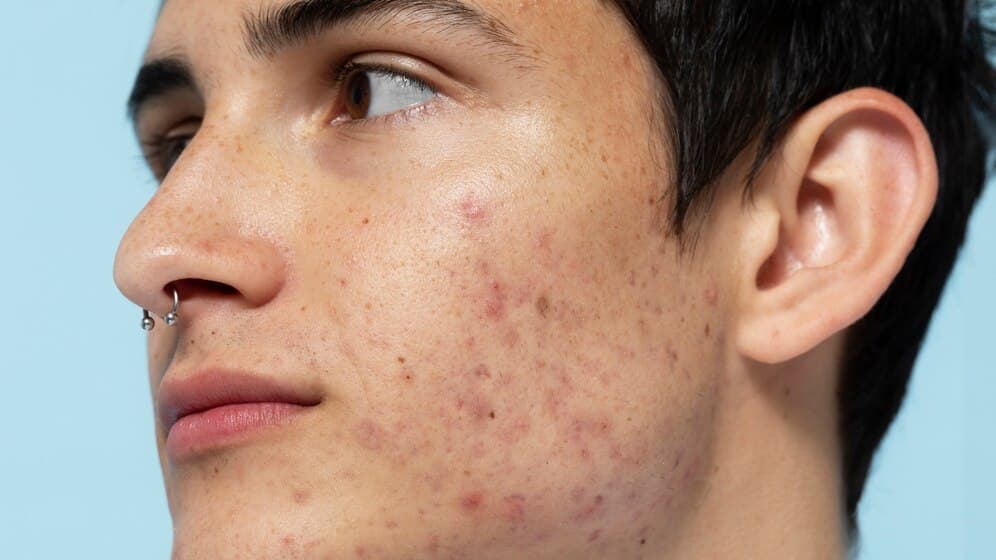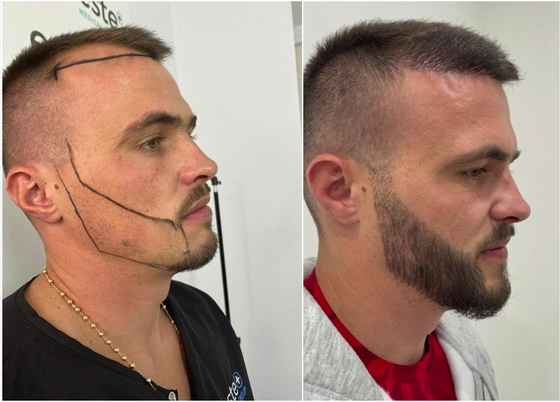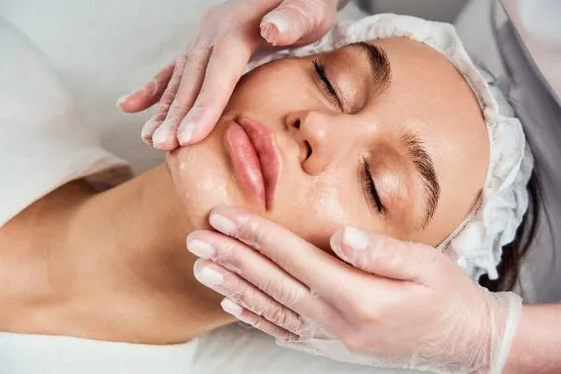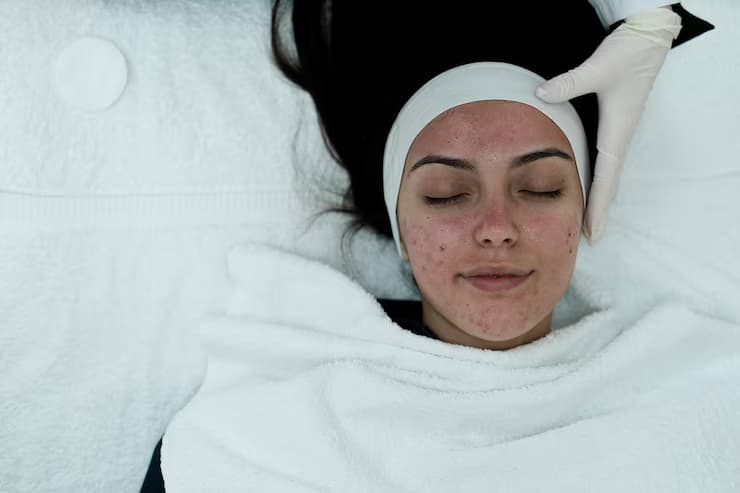The Ultimate Guide to Hyperpigmentation Treatments in London

Strong 8k brings an ultra-HD IPTV experience to your living room and your pocket.
Hyperpigmentation is a common skin condition that affects many individuals, manifesting as dark patches or spots on the skin. This condition can result from various factors, including sun exposure, hormonal changes, and skin injuries. While hyperpigmentation is not harmful, it can significantly impact one’s self-esteem and overall appearance. In London, where skincare is a priority for many, a myriad of treatments is available to address this concern.
This guide will explore the various options for treating hyperpigmentation in London, helping individuals make informed decisions about their skincare journey.
Understanding Hyperpigmentation
Before delving into treatments, it's essential to understand what hyperpigmentation is and why it occurs. Hyperpigmentation occurs when excess melanin, the pigment responsible for skin color, is produced in certain areas of the skin. Factors such as sun exposure, which stimulates melanin production, can lead to conditions like sunspots or age spots. Hormonal changes, particularly during pregnancy or due to contraceptive use, can result in melasma, a type of hyperpigmentation that often appears on the face. Additionally, post-inflammatory hyperpigmentation can occur after skin trauma, such as acne or cuts, leading to darkened areas even after the wounds have healed.
In London, the diverse climate and varying levels of sun exposure throughout the year can exacerbate hyperpigmentation issues. Therefore, understanding the underlying causes is crucial for choosing the appropriate treatment.
Topical Treatments
One of the most common approaches to treating hyperpigmentation is through topical treatments. These products often contain active ingredients designed to lighten dark spots and even out skin tone. Hydroquinone is one such ingredient, renowned for its ability to inhibit melanin production. However, it is crucial to use hydroquinone under the guidance of a skincare professional, as long-term use can lead to skin irritation or a condition known as ochronosis, which causes the skin to darken further.
Another popular ingredient is kojic acid, derived from fungi, which is known for its skin-lightening properties. It works by inhibiting the enzyme tyrosinase, crucial in melanin production. Vitamin C, a powerful antioxidant, not only helps in brightening the skin but also protects against UV damage, making it an excellent choice for those dealing with hyperpigmentation. Londoners can find numerous serums and creams containing these ingredients, but it’s essential to consult with a dermatologist to find the most suitable product for individual skin types.
Retinoids, which are derivatives of vitamin A, are also effective in treating hyperpigmentation. They promote cell turnover, helping to shed the outer layer of dead skin cells, revealing fresher, more evenly toned skin beneath. While retinoids can be highly effective, they may cause initial irritation or peeling, so it’s advisable to start with lower concentrations and gradually increase usage.
Chemical Peels
For those seeking quicker results, chemical peels offer a more intensive treatment option. This procedure involves applying a chemical solution to the skin, which causes the outer layer to exfoliate and eventually peel off. The depth of the peel can vary based on the concentration of the chemicals used, ranging from superficial peels that target the outermost layer of skin to deeper peels that penetrate further.
Superficial peels often use alpha hydroxy acids (AHAs) or beta hydroxy acids (BHAs), which can effectively treat mild hyperpigmentation. These peels are relatively gentle and usually require minimal downtime. On the other hand, deeper chemical peels, such as those using trichloroacetic acid (TCA), can provide more significant results for stubborn pigmentation but may require a longer recovery period.
In London, numerous clinics specialize in chemical peels, offering tailored treatments based on individual skin types and concerns. As with any cosmetic procedure, it’s crucial to seek treatment from qualified professionals to ensure safety and efficacy.
Laser Treatments
Advancements in technology have led to the development of various laser treatments that effectively target hyperpigmentation. Fractional laser therapy is one such option, which works by delivering targeted beams of light to the skin, stimulating collagen production and promoting skin renewal. This treatment is effective for post-inflammatory hyperpigmentation and melasma, as it helps to break down excess melanin in the skin.
Another popular laser treatment is intense pulsed light (IPL) therapy. Unlike traditional lasers, IPL uses broad-spectrum light to target pigmentation without damaging the surrounding skin. This makes it a suitable option for individuals with sensitive skin or those prone to irritation. IPL treatments in London can significantly reduce the appearance of dark spots and even skin tone after several sessions.
For those considering laser treatments, it is essential to consult with a dermatologist or skincare specialist to determine the best approach based on skin type, pigmentation severity, and desired results. As with any treatment, individual experiences may vary, and professional guidance is crucial for achieving optimal outcomes.
Microneedling
Microneedling is another innovative treatment gaining popularity in London for addressing hyperpigmentation. This minimally invasive procedure involves using fine needles to create micro-injuries in the skin, stimulating the body’s natural healing response. As the skin heals, collagen and elastin production increases, which can help to improve overall skin texture and tone.
Microneedling is particularly effective for post-inflammatory hyperpigmentation, as it helps to break up excess melanin and promotes a more even complexion. Additionally, this treatment can enhance the absorption of topical serums, making it a great complement to other hyperpigmentation treatments. Many clinics in London offer microneedling sessions, often combined with serums containing brightening ingredients for enhanced results.
Prevention is Key
While various treatments are available for hyperpigmentation, prevention should always be a priority. Sunscreen is an essential part of any skincare routine, especially for those prone to pigmentation issues. Daily application of a broad-spectrum sunscreen with a high SPF can protect the skin from UV damage, which is a significant contributor to hyperpigmentation. In London, where the weather can be unpredictable, it’s crucial to apply sunscreen even on cloudy days, as UV rays can still penetrate the skin.
Additionally, incorporating a consistent skincare routine that includes gentle exfoliation can help prevent the buildup of dead skin cells, which can contribute to the appearance of dark spots. Choosing products with antioxidants can also provide protection against environmental stressors that may exacerbate hyperpigmentation.
Conclusion
Hyperpigmentation can be a frustrating condition, but with the right knowledge and treatment options available in London, individuals can achieve a more even skin tone and regain their confidence. From topical treatments to advanced procedures like chemical peels and laser therapy, there are various avenues to explore. It’s always advisable to consult with a skincare professional to determine the most suitable treatment plan tailored to individual needs.
For those seeking expert guidance and effective treatments for hyperpigmentation in London, Este Medical Group offers a range of services designed to help you achieve your skincare goals. With a team of experienced professionals and a commitment to excellence, they are ready to assist you on your journey to healthier, more radiant skin. Don't hesitate to reach out and discover how they can help you conquer hyperpigmentation today!
Note: IndiBlogHub features both user-submitted and editorial content. We do not verify third-party contributions. Read our Disclaimer and Privacy Policyfor details.







